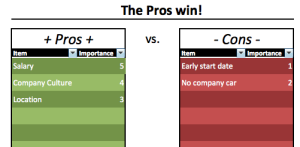Stuck with no friends at work? Whether you enjoy or dislike your job, that’s never a good spot to be in.
Say you love your job. Wouldn’t going to work be that much more fun if you had a great friendship with your manager and your coworkers? Heck yes. Then you wouldn’t be stuck eating lunch alone, feeling all alone, because you are alone.
Or if you dislike the actual work and don’t have camaraderie with any of your coworkers, that sounds like cruel and unusual punishment. It weighs on your soul when you’re only working for a paycheck, and no other satisfaction.
And having no friends at your job becomes more depressing when you consider that you spend the majority of most days working with these people. That’s too much time passing where you’re not around people you enjoy.
The positive is that all it takes is one good introduction or conversation to start building a friendship at work and reaping the rewards.
This isn’t some one-year plan or multi-tiered strategy. After reading this, you can get started today or tomorrow.
Making friends becomes easy, wherever you are at work (or outside of work), if you know what you’re doing and have the courage to do it.
Let’s start with gaining some mental tools.
Quick Actions To Make Friends At Work
Making friends at work is all about making an effort. You have to get outside your head and do things different.
You will get the most social results by taking these five action steps on a consistent basis.
1) Be the initiator
Swarms of friends aren’t going to magically come to you and ask for your friendship. You have to be the initiator if you want to improve in this area.
An easy and effective first solution is to smile and say “hello” when you see a coworker. Smile and say “hi” on the elevator, on the way to your desk, and walking through the office.
What happens is other people will appreciate the gesture, return it, and next time they see you they’ll smile and say “hi.” That’s the initial building block of a friendship.
Then you can take your initiator role a step farther and spark up a conversation—right then and there if it’s appropriate or the next time you see them.(We’ll get into what to say in Step 2.)
And a third way to initiate is to invite people places. Invite them to get coffee, lunch, or dinner after work.
Ironically, when you’re known as the friendly one who always says “hi” and invites them places, people will remember and start to invite you places. That’s how you meet other people and gain more friends.
2) Ask open-ended questions to learn about them
After you initiate and say “hi” or introduce yourself, the key is to ask good questions or you’ll make the conversation awkward for the both of you.
Here is a list of questions to lead with:
- How are you doing today?
- Did you see the [insert team name] game last night?
- What are you working on this week?
- I’m thinking about planning a vacation. What’s your favorite vacation spot?
- What do you enjoy most about your job?
- How was your weekend? What did you do?
- I’m struggling with [insert thing you’re struggling with]. Do you have any advice?
- Why did you choose this career?
- What’s your family like?
- What’s one of your goals this year?
Almost every human enjoys talking about themselves. That’s why questions like these work so well. And don’t just continue to ask questions. Balance the conversation by adding your input and talking about what you have in common.
3) Look for something you have in common
When you’re patient and focus on active listening, 95% of the time you’ll find something you have in common based on what they answer to your questions.
And if for some odd reason you can’t find anything in common based on what you hear, another tip is to use your eyes. Scan their office wall pictures, outfit, or desk and you can usually find something worth talking about like a picture of their spouse, kids, or favorite vacation spot.
Realistically, you only need to find one thing you have in common and use that as a conversation starter going forward. Then, over time, you’ll find other things you have in common and build from there.
This means every conversations gets easier after the first or second introduction.
4) Help coworkers when you can
Maybe the most powerful way to build a relationship is to serve someone in their time of need. If you’re asked to help with a big project, fill in for someone sick, or assist organizing the office party, for example, do it without thinking twice.
You’ll not only build friendship points by doing it, you’ll also get more familiar with these people while assisting them. That leads to future interaction and friendship.
Or if someone looks swamped, you don’t need to be asked to help. Offer to assist them and see if they would like that. That goes back to being the initiator from Step 1. They will appreciate the offer whether they accept it or don’t.
Put simply, actions speaker louder than words. Staying two hours after you normally leave work to help them finish a project at crunch time means 100% more than asking about their weekend.
5) Share about life outside of work
If all you and another person can talk about is work, I’d call you work friends but not true friends. Because all healthy friendships are balanced between discussions about work and life outside of work.
Your job is just something you do. It’s not who you are.
So ask questions and open up about your interests, hobbies, friends, worries, and more. The more you talk about, odds are the more similarities you’ll share. And talking about other things gets you away from criticizing your boss or company too much.
Final Words
What I’ve learned over my short life is that healthy relationships at work inspire people to be more honest, productive, and supportive of each other.
The good days at work become better when you have people to celebrate your victories. And the bad days don’t sting as hard when you’ve got a team you know and trust.
Plus, if you’re spending around 45 hours a week or more at work, the time is going to go by faster and be more enjoyable when you have friends working side by side with you.
And your relationships (in other words your network) will often influence your job security, career advancement, and salary decisions.
Now go out and make some friends at work.
Related
Is It Possible To Learn How To Connect With Anyone?



